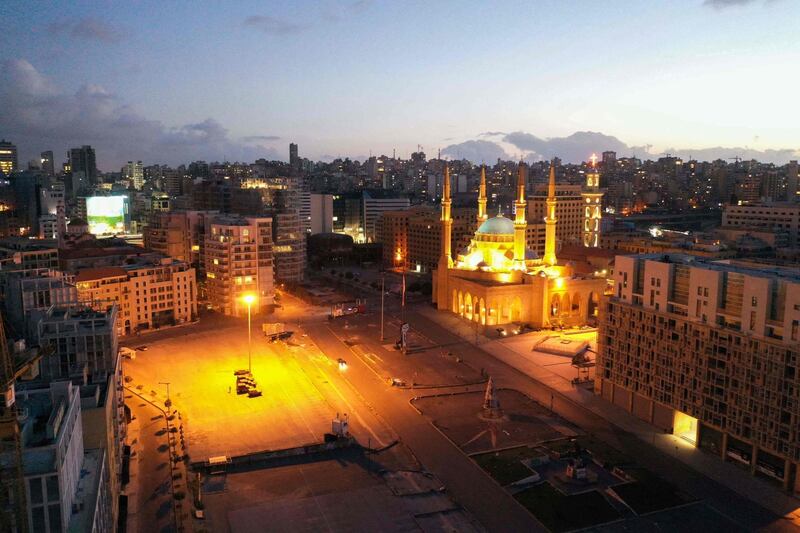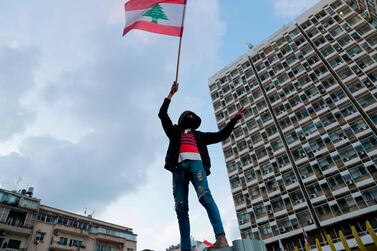Business conditions in Lebanon's economy deteriorated in March to their lowest levels since records began, as the effect of limiting the spread of the coronavirus added to the strains on an economy that had already been battling the effect of months of unrest.
The country recorded a PMI (Purchasing Managers’ Index) reading of 35.0, down markedly from 45.4 in February, pointed to the quickest deterioration in private sector business conditions since data collection began in May 2013. A reading above 50 indicates economic expansion and below 50 contraction.
The PMI reading, a composite measure of conditions in the private sector economy, showed a marked contraction in output as companies pared back activity or simply closed in response to the outbreak. Demand also collapsed, with new orders falling at the fastest pace on record.
“Lebanon registered its first Covid-19 case on February 21, 2020. By mid-March, the government had banned all flights from countries witnessing significant coronavirus outbreaks and announced a national lockdown,” Rouba Chbeir, senior economist at Blom Bank, said in a statement.
“The new cabinet urged citizens to stay at home and companies to split employee shifts in cases of extreme necessity. Consequently, private sector companies already grappling with the country’s severe economic and financial crisis before the virus outbreak slashed their employment further. Meanwhile, coronavirus closures sent output and new orders to historical lows as March’s PMI, not surprisingly, slumped to 35 points.”
The fall in demand also meant job cuts continued, with businesses reducing staff numbers at the fastest rate since records began, the survey showed. Purchasing activity also fell at the fastest rate on record, extending a downward run that began in February 2016.
Lebanon had been in the midst of an economic and political crisis even prior to the coronavirus outbreak, with the government defaulting on its sovereign debt last month and announcing that it would stop repaying debts owed on dollar-denominated eurobonds in a bid to preserve its depleting foreign exchange reserves.
Lebanon has one of the highest debt-to-gross domestic product ratios (166 per cent) in the world, according to the Institute of International Finance (IIF). Its public debt increased 7.6 per cent to $91.64bn year-on-year as of the end of December 2019.
Lebanese businesses remained pessimistic towards the 12-month business outlook in March, driven by anticipation for prolonged financial instability. However, the degree of negativity was fractionally softer than February's record low, the report said.
Lebanon is experiencing its worst economic crisis since the end of a 15-year civil war in 1990, which gave rise to an unprecedented wave of public protests.
The country has one of the highest debt-to-gross domestic product ratios (166 per cent) in the world, according to the Institute of International Finance (IIF). Its public debt increased 7.6 per cent to $91.64 billion (Dh336.5bn) year-on-year as of the end of December 2019.
Lebanon is planning to finalise a turnaround plan by year-end to boost the economy, finance minister Ghazi Wazni said last month.
“The government has committed to develop a comprehensive recovery plan and engage into required structural reforms,” he said.







